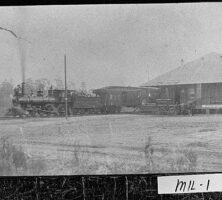Colquitt is not only the county seat but also the only incorporated area of Miller County, in southwest Georgia.
The state legislature established Miller County in February 1856 from portions of Early and Baker counties. Later that same year inferior-court justices, granted authority by lawmakers to choose a central location for business, declared Colquitt the county seat. The town was named for Walter Terry Colquitt, a circuit-riding Methodist preacher, attorney, judge, and statesman who served Georgia in the state senate, U.S. senate, and U.S. Congress.

Agriculture is a major industry in the Colquitt and Miller County areas, the main crops being peanuts, cotton, corn, and timber.
Despite the town’s rural setting, Colquitt is steeped in the performing arts. The town is home to Swamp Gravy, a locally run theater company that brings southern-spun tales to the stage. The plays are often based on local folklore, and community members of all ages and backgrounds participate in the productions. Swamp Gravy performances occur each spring and fall, usually playing to packed houses inside the Cotton Hall, a restored warehouse built during the New Deal, which serves as a theater. The Cotton Hall also houses the Storytelling Museum, with 10,000 artifacts illustrating life in rural southwest Georgia.
Colquitt is also home to HennyPenny Video/Television Productions Incorporated, a nonprofit organization headed by Ralph Wilcox, a thirty-year veteran of theater and television. Wilcox serves as southwest Georgia’s film commissioner and is executive director of HennyPenny, which operates a modern studio in Colquitt and strives to entice television and film executives to choose southern Georgia for production shoots.
Other local attractions include Georgia’s official monument to Native Americans. The twenty-seven-foot cedar sculpture, titled Whispering Giants, is by Hungarian-born artist Peter Toth, who has placed one of these tributes in every state. As of 2006 the Millennium Mural Project, funded by the U.S. Department of Agriculture, the Mid-Atlantic Arts Foundation, and the Georgia Council for the Arts, consists of eleven murals in Colquitt. The state legislature designated Colquitt “Georgia’s First Mural City” in 2006. Every April the city, known as the “Mayhaw Capital of the World,” celebrates the National Mayhaw Festival with a parade and arts-and-crafts show. The mayhaw, the fruit of the thorny hawthorne tree, is very tart and most commonly used in making jellies and jams.
According to the 2020 U.S. census, the population of Colquitt was 2,001.





